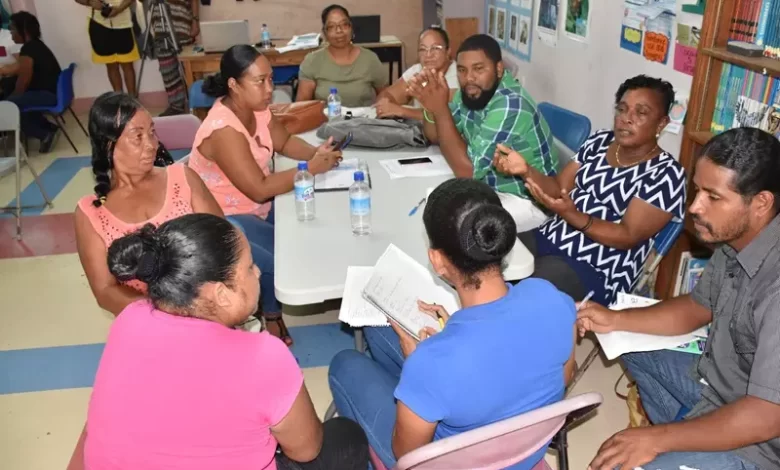Kalinago Council

The Kalinago Council is the governing body representing the Kalinago people within Dominica’s Kalinago Territory. Established in 1952, the council functions similarly to other village councils on the island but stands out due to its unique structure and governance abilities. It can enact by-laws for the administration of the territory and operates on an equal level with the Roseau City Council and Portsmouth Town Council.
Kalinago Territory’s Kalinago Council
Kalinago Territory’s Kalinago Council comprises all elected members, serving a five-year term, unlike other local councils that serve three-year terms with a mix of elected and appointed members. This longer term allows for more excellent continuity in governance and development projects. The Kalinago Chief and councillors represent the Kalinago people, oversee daily affairs, and manage the unique communal land system.
The council is vital in preserving Kalinago culture and promoting economic development through initiatives like Kalinago Upliftment. Collaborating with organizations such as the United Nations Development Programme (UNDP), the council supports sustainable livelihoods through agriculture, tourism, and cultural heritage preservation. The Kalinago Barana Autê, a cultural centre, showcases traditional Kalinago life, enhancing cultural preservation and tourism.
The council is integral to improving infrastructure and managing roads like Concord-Salybia and East Coast Road. These roads connect the territory with other parts of Dominica, facilitating commerce and tourism. By ensuring these transport links are maintained, the council supports economic growth and accessibility.
The Kalinago Council collaborates with the Dominican government and NGOs to implement development projects benefiting the community. It manages spaces like Jolly John Memorial Park, which hosts cultural events and community activities. These partnerships aim to enhance living standards and preserve cultural heritage.
Challenges and Future Prospects
Despite progress, the council faces limited resources and infrastructure needs. Collaborations with international partners and the Dominican government focus on resilience and sustainable development. By leveraging cultural landmarks like L’Escalier Tete Chien for eco-tourism, the council works to boost the local economy while preserving the rich heritage of the Kalinago people.




